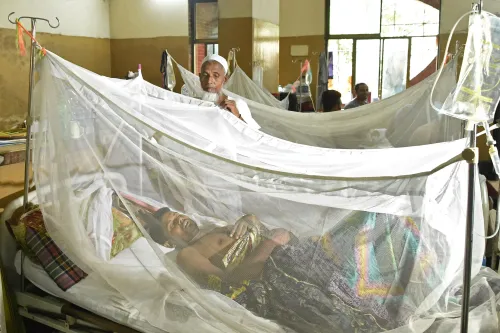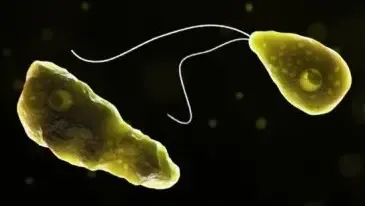What Did Researchers Discover About Neurotoxins in Odisha’s Ancient Cycad Plants?

Synopsis
Key Takeaways
- BMAA is identified as a potential neurotoxin in ancient Cycad plants.
- Continued consumption of cycad-based foods raises health concerns.
- Research at AIIMS Bhubaneswar is focused on understanding neurological impacts.
- Workshops involving national and international experts are underway.
- Field visits provide insights into local dietary practices.
Bhubaneswar, Nov 4 (NationPress) In a groundbreaking scientific revelation with significant implications for public health, researchers at AIIMS Bhubaneswar have uncovered the existence of BMAA (β-N-methylamino-L-alanine), a potential neurotoxin, present in various species of ancient Cycad plants thriving in Odisha's forests, according to a press release issued on Monday.
This alarming discovery has sparked worries as certain local communities still consume cycad-based foods like pitha, a traditional rice cake in Odisha, integrated into their diets and rituals. The pressing concern about whether these consumption habits are directly correlated with a rise in neurological diseases has instigated new research endeavors at AIIMS Bhubaneswar. “To tackle this urgent issue, a prestigious assembly of national and international scientists and medical professionals gathered at an international workshop titled ‘Cycad-Related Neurological Disorders: A Multi-Dimensional Approach to Its Remediation’,” the statement elaborated.
As per AIIMS Bhubaneswar, the workshop underscored the potential health hazards tied to cycads, an ancient plant lineage that coexisted with dinosaurs over 300 million years ago. Often utilized as ornamental plants today, cycad species harbor potent toxins including Cycacin, BMAA (β-N-methylamino-L-alanine), and MAM (methylazoxymethanol).
These toxic compounds have been associated with neurodegenerative ailments like Parkinsonism, motor neuron disease, and dementia in locations such as the Guam Peninsula (USA) and the Kii Peninsula (Japan), where cycads have been historically part of local diets.
During the workshop, experts undertook field visits to tribal villages, including Dhuanali in Khordha district and Gangamunda and Suaginali in the Kamakhyanagar area of Dhenkanal district. In these regions, local tribal communities continue to depend on the Cycas plant—referred to locally as Veru (Odia name: Aruguna)—as a traditional food source.
Throughout these visits, experts engaged with villagers, patients, and local healthcare practitioners to gain insights into potential neurological and related health concerns stemming from the consumption of cycad seeds.









